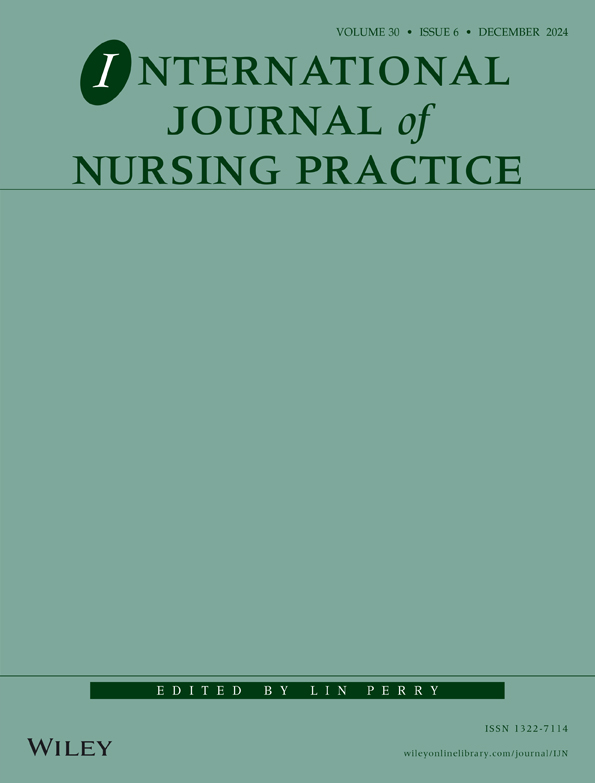Mindfulness-based intervention as a symptom management strategy in patients with end-stage renal disease: A controlled clinical trial
Funding information: This study received funding from Jordan University of Science and Technology, Deanship of Research.
Abstract
Aim
The study's purpose was to examine the effect of mindfulness-based intervention (MBI) on physical and psychological symptoms in patients with end-stage renal disease (ESRD) in Jordan.
Methods
A repeated-measure randomized control study was conducted in a haemodialysis unit in Jordan between April 2023 and July 2023. Participants (N = 61) were selected using convenience sampling and then randomly assigned into experimental and control groups. The experimental group performed 30-min MBI, three times a week for 8 weeks during haemodialysis sessions. The Depression, Anxiety and Stress Scale-21 and the Patient Health Questionnaire-15 were used to measure the outcomes at baseline, after 5 weeks of the intervention and at the end of the intervention.
Results
Mixed-model repeated-measure ANOVAs revealed that the experimental group showed significantly lower levels of stress, depression and physical symptoms than the control group over time. Within-subject repeated-measure ANOVAs revealed that, in the experimental group, physical symptoms improve significantly over the three points of time. However, significant reductions in psychological symptoms occurred 5 weeks after initiating the intervention, but there was no further significant improvement at the end of the intervention.
Conclusion
The study supports the integration of MBI as a symptom management strategy into nursing care plans of patients with ESRD.
Trial Registration
Clinical trial.gov; registration ID: NCT06064708.
Summary statement
What is already known about this topic?
- Mindfulness-based intervention (MBI) has significantly improved a wide range of physical and psychological symptoms in patients with a variety of medical and mental chronic illnesses.
- Little is known of the effect of MBI on physical and psychological symptoms among patients with end-stage renal disease (ESRD) undergoing haemodialysis in Jordan.
What this paper adds:
- Compared with the control condition, MBI significantly decreased the levels of stress, anxiety, depression and physical symptoms over time.
- Five weeks of the MBI was found to be significantly effective in decreasing psychological symptoms, but 8 weeks of the MBI was found to be more effective in decreasing physical symptoms.
The implications of this paper:
- The study supports the integration of MBI as a symptom management strategy into nursing care plans of patients with ESRD.
- Nurses and other healthcare providers should be encouraged by hospital administration to replicate the study and provide patient education on the potential advantages and use of MBI.
CONFLICT OF INTEREST STATEMENT
The authors declare no conflict of interest.
Open Research
DATA AVAILABILITY STATEMENT
The data that support the findings of this study are available on reasonable request from the corresponding author. The data are not publicly available due to privacy or ethical restrictions.




